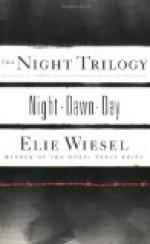The love which like an endless golden
chain
Joined all in one.
Whatever others may think, it is my firm belief that Buddhism and Christianity, which we cannot doubt have influenced for good such vast masses the human family, both descended from heaven clothed in robes of celestial purity which have become sadly stained by their contact with the selfishness of a sinful world, except for which belief the following pages would never have been written, which are now sent forth in the hope that they may do something to enable Buddhists and Christians to see eye to eye and something to promote peace and good-will among men.
While following my own conceptions and even fancies in many things, I believe the leading characters and incidents to be historical, and I have given nothing as the teaching of the great master which was not to my mind clearly authenticated.
To those who have read so much about agnostic Buddhism, and about Nirvana meaning annihilation, it may seem bold in me to present Buddha as an undoubting believer in the fundamental truths of all religion, and as not only a believer in a spiritual world but an actual visitor to its sad and blissful scenes; but the only agnosticism I have been able to trace to Buddha was a want of faith in the many ways invented through the ages to escape the consequences of sin and to avoid the necessity of personal purification, and the only annihilation he taught and yearned for was the annihilation of self in the highest Christian sense, and escape from that body of death from which the Apostle Paul so earnestly sought deliverance.
Doubtless agnosticism and almost every form of belief and unbelief subsequently sprang up among the intensely acute and speculative peoples of the East known under the general name of Buddhists, as they did among the less acute and speculative peoples of the West known as Christians; but the one is no more primitive Buddhism than the other is primitive Christianity.
While there are innumerable poetic legends—of which Spence Hardy’s “Manual of Buddhism” is a great storehouse, and many of which are given by Arnold in his beautiful poem—strewn thick along the track of Buddhist literature, constantly tempting one to leave the straight path of the development of a great religion, I have carefully avoided what did not commend itself to my mind as either historical or spiritual truth.
It was my original design to follow the wonderful career of Buddha until his long life closed with visions of the golden city much as described in Revelation, and then to follow that most wonderful career of Buddhist missions, not only through India and Ceylon, but to Palestine, Greece and Egypt, and over the table-lands of Asia and through the Chinese Empire to Japan, and thence by the black stream to Mexico and Central America, and then to follow the wise men of the East until the Light of the world dawned on them on the plains of Bethlehem—a task but half accomplished, which I shall yet complete if life and strength are spared.




